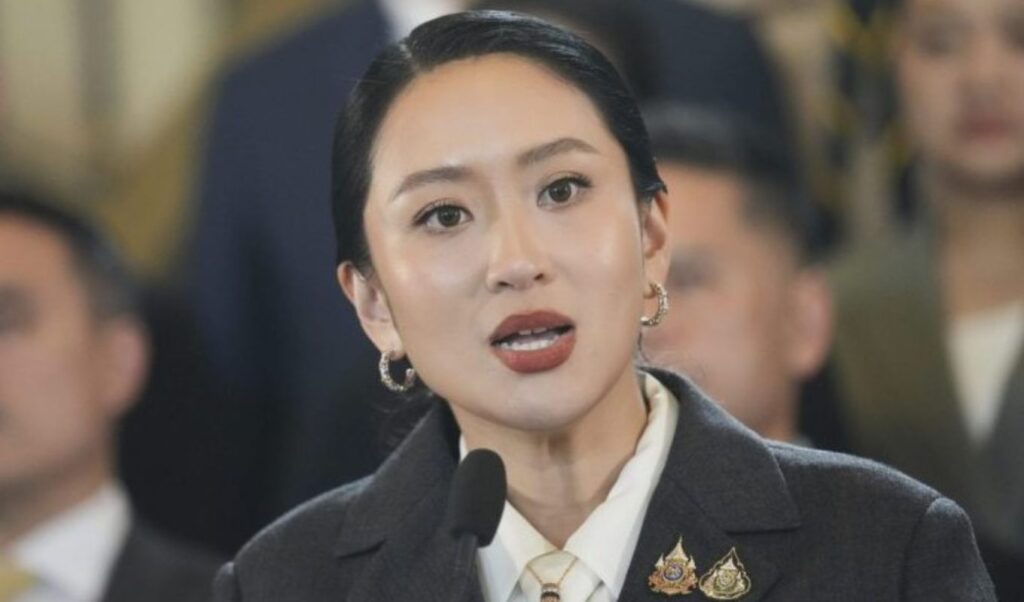Thailand’s Constitutional Court today removed Prime Minister Paetongtarn Shinawatra and her cabinet due to her handling of tensions between her country and neighboring Cambodia.
Read: Cambodia proposes Donald Trump for Nobel Peace Prize after his mediation with Thailand
In their ruling, the nine judges determined that she violated the ethical standards required of a prime minister during a June phone conversation with former Cambodian leader Hun Sen, which was leaked online.
A week ago, Paetongtarn’s father, Thaksin Shinawatra, was cleared of charges in his trial for defaming the king. The 76-year-old billionaire former prime minister faced up to 15 years in prison if found guilty.
Paetongtarn Shinawatra becomes the third member of her family to leave government leadership after her father and aunt Yingluck, both of whom were overthrown by military coups.
The Constitutional Court had also dismissed her predecessor Srettha Thavisin a year ago.
Jiraporn Sinduprai, a Paetongtarn supporter, said today before the ruling announcement that the former PM was in good condition.
Thailand: Why was the prime minister removed?
Paetongtarn Shinawatra was accused of violating the ethical standards that the head of government must meet under the Constitution during her phone conversation with Cambodian Prime Minister Hun Sen.
The phone conversation, which was recorded and broadcast without the Thai leader’s knowledge, took place in June while Bangkok and Phnom Penh were engaged in a standoff following the death of a Cambodian soldier in late May after an exchange of fire with Thailand’s army in a disputed border area.
The conservative Bhumjaithai party then left the coalition it had formed with the Pheu Thai party, accusing Shinawatra of being too friendly toward Hun Sen.
The case triggered a political crisis and resulted in renewed tensions between Thailand and Cambodia. Five days of armed clashes in July resulted in 40 deaths and forced at least 300,000 people to flee their homes.
Paetongtarn Shinawatra testified during her trial on August 21, on her 39th birthday.
For about 20 years, Thai politics has been marked by a battle between the Shinawatra family and the conservative elite, which considers the former a threat to Thailand’s traditional social order.
Paetongtarn Shinawatra’s removal could plunge the country into political paralysis, as there is no obvious candidate who appears capable of taking over the prime ministerial position.
Thailand: Who will replace the prime minister?
Her party, Pheu Thai, leads a fragile and unstable coalition in Parliament. Under Thailand’s Constitution, only those who officially ran as prime ministerial candidates in the last 2023 parliamentary elections can be elected.
However, of the nine people originally proposed by major parties in 2023, four are already ineligible while the potential candidacies of the other five face obstacles for various reasons.
Holding new elections may seem like a solution, but it’s unclear whether current interim Prime Minister Phumtham Wechayachai, who had refused until now to comment on Paetongtarn Shinawatra’s potential removal, will call elections or if only a prime minister approved by Parliament has the right to do so.




